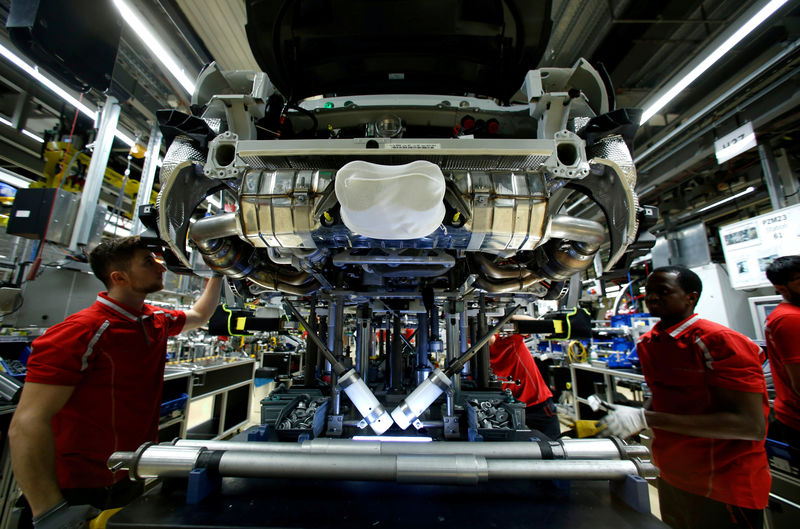BERLIN (Reuters) - German industrial output rose unexpectedly in August but analysts said Europe's biggest economy remains at risk of recession after months of contraction in manufacturing.
Industrial output rose 0.3% on the month after two successive monthly drops, Statistics Office figures showed on Tuesday, defying expectations of a 0.1% decline.
The rise was driven by production of intermediate and capital goods, the Economy Ministry said. Manufacturing rose 0.7% while construction fell by 1.5%, the data showed.
Germany's export-dependent manufacturing sector is already in recession. That has dragged on the economy as a whole, which shrank in the second quarter. Economists expect another slight economic contraction in the July-September period.
Uncertainties linked to Britain's planned departure from the European Union and global trade disputes are starting to hurt Germany's labor market, which has been the backbone of a consumption-driven growth cycle as exports weaken.
"Given that industrial output provides us with a deep look into the economic development in the third quarter, one could entertain the idea that the German economy will just about avoid a recession," Thomas Gitzel of VP Bank wrote in a note.
"But unfortunately one must consider the industrial production data for August as a flash in the pan," he added. "We expect production in September to be negative. This means that GDP will contract at least slightly in the third quarter."
In another sign that the gloom in manufacturing will continue, the BGA trade association on Tuesday slashed its 2019 trade forecasts. It expects exports to grow by a maximum of 0.5% this year from a previous prediction of 1.5%.
STIMULUS NEEDED
July's output reading was revised up to a fall of 0.4% from a previously reported drop of 0.6%. On Monday, data showed that industrial orders had fallen more than expected in August on weaker domestic demand.
Chancellor Angela Merkel's right-left coalition government has resisted calls for a substantial spending package to offset the slowdown and put the economy back on a growth path.
Peter Vanden Houte of ING warned it was too early to talk about a trend reversal in German manufacturing despite August's rise in output, adding that the big picture remains negative.
"The omen remains bleak," he wrote in a note. "As long as world trade stagnates, German industry and by extension the whole German economy is almost certainly bound to languish."
Prolonged weakness in Germany, a bellwether for the economic health of the euro zone, would be a headache for the European Central Bank, which in September pledged indefinite stimulus to revive the bloc's economy.
Economists and German business lobby groups have urged Merkel to ditch her policy of no new debt and borrow to fund a stimulus package for the economy.
Pressure on her to act will intensify if the economy continues to weaken.
"We believe that at the beginning of next year, additional budgetary stimulus might be put in place, paving the way for an economic upturn in the course of 2020," said ING's Vanden Houte.
